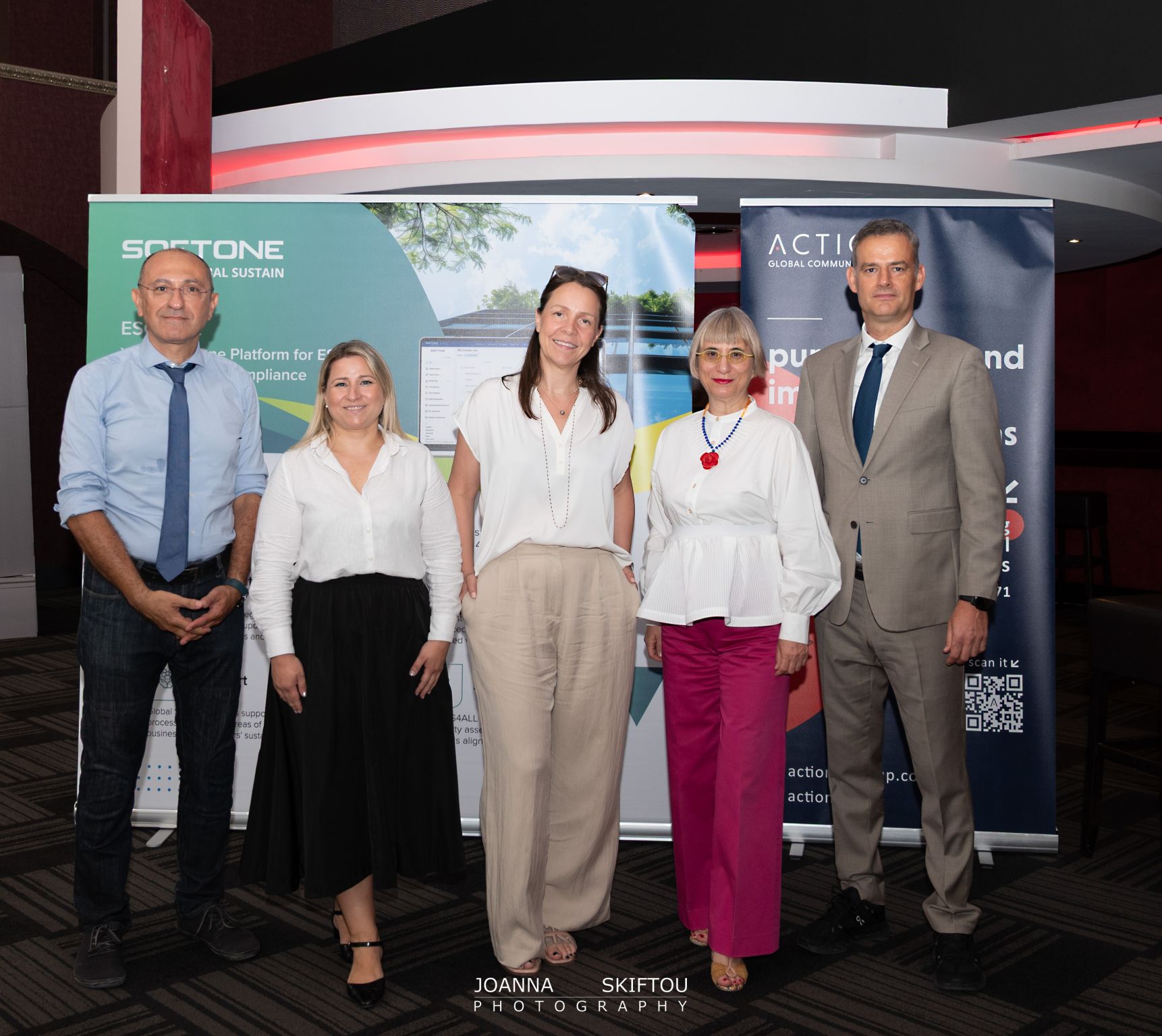In today’s world, ESG is no longer just a corporate responsibility checkbox, it’s become central to a company’s identity and reputation. As consumers grow more mature and discerning, the way organisations communicate their environmental, social, and governance (ESG) commitments can either build lasting trust or expose a credibility gap.
This was one of the key messages shared by Aggeliki Kiofiri, country manager, Greece at Action Global Communications, during the “Brand Awareness and Sustainability – The Trust Factor” workshop in Athens.
Co-organised by SOFTONE GLOBAL SUSTAIN and ANTENNA Group, the event brought together senior decision-makers from sectors such as technology, law, audit, hospitality, energy, food, education, automotive, manufacturing, sports, and medical equipment supply to discuss the role of ESG in building a credible corporate identity.
Kiofiri drew from Action Global Communications’ Why ESG Matters survey to demonstrate how strategic, transparent, and authentic communication around ESG not only strengthens brand reputation but fosters real engagement with stakeholders.
“Businesses must communicate and clearly showcase their ESG practices and enhance public awareness on these matters, as today’s consumers are far more mature,” she said, stressing that organisations need to shift toward purpose-driven communication, where purpose becomes the message and explains the “why” behind their actions.






“We are no longer simply talking about branding, we are now talking about identity,” said Action’s country manager. “At the same time, corporate storytelling must evolve significantly. It requires a strategic and authentic integration of the ESG narrative and the positive impact a company has both on people and the communities it affects.”
Highlighting the evolving role of PR and communications in the sustainability era, Kiofiri underscored the importance of values like honesty, transparency, authenticity, and consistency. She also emphasised that communication should go beyond storytelling; it should be data-backed, interactive, and measurable.
“Communication, in my view, should always take the form of a dialogue with the audience, allowing them to feel like participants rather than passive observers. It is also particularly important for any communication to be accompanied by KPIs and measurable data, so that actions and performance are substantiated by tangible results, further strengthening trust,” she said.
Kiofiri also pinpointed the crucial role of internal communication, noting that employees are often the first and most powerful sustainability ambassadors.
“We must not forget internal communication either. Employees are a company’s first sustainability ambassadors, and they can often make or break a sustainability strategy — no matter how ambitious the plan may be on paper. Therefore, cultivating a sustainability-driven culture internally is equally important,” she concluded.
The expert panel also featured Domnika Skreta, social impact manager, ANTENNA Group; Michalis Spanos, CEO, Global Sustain; Betty Tsakarestou, PhD – associate professor, director, ADandPRLAB, Panteion University; Pavlina Konstantara, director of brand relations, SOCIALDOO; and Thanos Belalidis, founding partner, Sympraxis.
Panel discussions also delved into practical actions, best practices, and initiatives that drive real change. Experts explored how media can serve as a catalyst for progress in both social and environmental areas and how effectively communicating a brand’s ESG vision and results is key to long-term success.
Discover more ley insights from Action Global Communications’ ‘Why ESG Matters” survey HERE.

